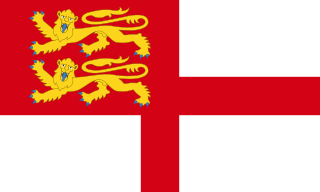Top Qs
Timeline
Chat
Perspective
Seigneur of Sark
Hereditary title in Sark, Channel Islands From Wikipedia, the free encyclopedia
Remove ads
The Seigneur of Sark is the lord of the manor of Sark in the Channel Islands. A female seigneur of Sark is called Dame of Sark, of which there have been three. The husband of a female ruler of Sark is not a consort but is jure uxoris ("by right of (his) wife"[1]) a seigneur himself.[2]

Remove ads
Description
The title is hereditary, but with permission of the Crown, it may be mortgaged or sold, as happened in 1849 when Pierre Carey le Pelley sold the fief to Marie Collings for £6,000.[3]
The Seigneur was, before the constitutional reforms of 2008, the head of the feudal government of Sark, with the British monarch being the feudal overlord. The Seigneur had a suspensive veto power and the right to appoint most of the island's officers. Many of the laws, particularly those related to inheritance and the rule of the Seigneur, had changed little since Queen Elizabeth I, by Letters Patent, granted a fiefdom to Hellier de Carteret in 1565.[4][5]
The residents of Sark voted to introduce a fully elected legislature to replace the feudal government in a 2006 referendum,[6] and the law change was approved on 9 April 2008.[7] The first democratic election was held on 10 December 2008.[8] The changes in the political system mostly apply to the parliament, the Chief Pleas, not to the Seigneur.[citation needed]
Many seigneurs are buried at St. Peter's Anglican Church, Sark.[citation needed]
Remove ads
Seigneurs of Sark
Summarize
Perspective
The heir apparent to the seigneurship is the present seigneur's son, Hugh Rees-Beaumont.
Remove ads
Notes
- Husband of Sibyl Hathaway.
References
Wikiwand - on
Seamless Wikipedia browsing. On steroids.
Remove ads





